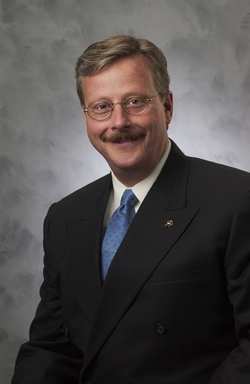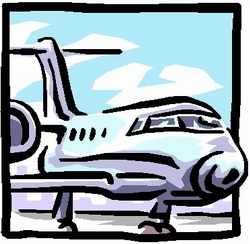Wants To Allow Further Euro-Business Aviation Expansion
 Business aviation in
Europe, thanks to strong economic factors in recent years, will
continue to grow as long as suppliers, governments, and service
providers continue to work together on issues such as airport
access and operational regulation, according to Jack Pelton,
chairman, president and chief executive officer of Cessna.
Business aviation in
Europe, thanks to strong economic factors in recent years, will
continue to grow as long as suppliers, governments, and service
providers continue to work together on issues such as airport
access and operational regulation, according to Jack Pelton,
chairman, president and chief executive officer of Cessna.
"The time is clearly ripe for our industry to fulfill its
promise and capitalize on the current positive climate for
expansion," Pelton told a lunchtime gathering of the prestigious
Aviation Club of the United Kingdom. "Provided that its needs and
differences are accommodated by regulators, business aviation will
continue to grow at a manageable pace and complement the work of
other air operators."
Pelton said business aviation traffic in Europe continues to
grow at near double-digit rates in terms of flights, aircraft and
passengers. But the myths of "a Jetson-style future with an entry
level jet in every driveway" and declining airline traffic due to
business aviation do not hold up as fact and should not be used as
a foundation for increased government regulation.
"There remain pockets where the real facts and benefits of
business aviation are not understood," Pelton said. "As a result,
we sometimes see misguided decisions to curb access, taken by
people who equate us with noise, congestion or inconvenience."
Pelton also took issue with critics who claim business aviation
siphons passengers from commercial airliners. He said only 30
percent of business jet departures from European airports in 2005
were from airports with 100 or more daily departures. In other
words, most business aviation flights are between smaller airports
with limited or no airline service. It is not unusual, he said, for
business fliers to use on-demand travel in conjunction with
scheduled airline travel.
"The fact is, business aviation users are also the biggest users
of the airlines," Pelton said. "Proof, if it were needed, can be
seen in the sustained premium traffic growth, and overall historic
passenger volumes, that airlines have experienced over the past 18
months, which coincide with the upward trajectory of business
aviation."
The growth of the market is a result of both the strong economy
in Europe and the changing face of the business traveler, Pelton
said. More businesses across Europe are seeing benefits and cost
savings through on-demand air travel, while technology and
increasing competition among providers is opening it up to a larger
slice of society.
 Despite the growing
global reliance on business aviation due to its efficiencies and
cost-savings, there are factors, some specific to Europe, which
could work to suppress it.
Despite the growing
global reliance on business aviation due to its efficiencies and
cost-savings, there are factors, some specific to Europe, which
could work to suppress it.
Raising operating or airport access fees for business jet
operators to put them on par with commercial operators could have
the effect of pricing business aviation out of the market. Pelton
said this is evidence of a poor understanding of the finances of
business aircraft operators and their value "as part of a diverse
transportation network."
Part of the solution, Pelton said, is the development of
business aviation centers away from congested hub airports such as
the new development at Farnborough (FAB/EGLF).
"We need to see similar facilities appearing elsewhere in Europe
to address any exodus of business operators from larger airports,"
Pelton said. "In the meantime, we need to ensure that business
operator interests are understood."
Pelton praised the work of the European Business Aviation
Association, the British Business and General Aviation Association,
the European Aviation Safety Agency, and the national regulatory
agencies in maintaining security within the industry, another key
issue for the future.
 ANN's Daily Aero-Linx (04.16.24)
ANN's Daily Aero-Linx (04.16.24) Aero-News: Quote of the Day (04.16.24)
Aero-News: Quote of the Day (04.16.24) Airborne 04.10.24: SnF24!, A50 Heritage Reveal, HeliCycle!, Montaer MC-01
Airborne 04.10.24: SnF24!, A50 Heritage Reveal, HeliCycle!, Montaer MC-01 Airborne 04.12.24: SnF24!, G100UL Is Here, Holy Micro, Plane Tags
Airborne 04.12.24: SnF24!, G100UL Is Here, Holy Micro, Plane Tags Airborne-Flight Training 04.17.24: Feds Need Controllers, Spirit Delay, Redbird
Airborne-Flight Training 04.17.24: Feds Need Controllers, Spirit Delay, Redbird




